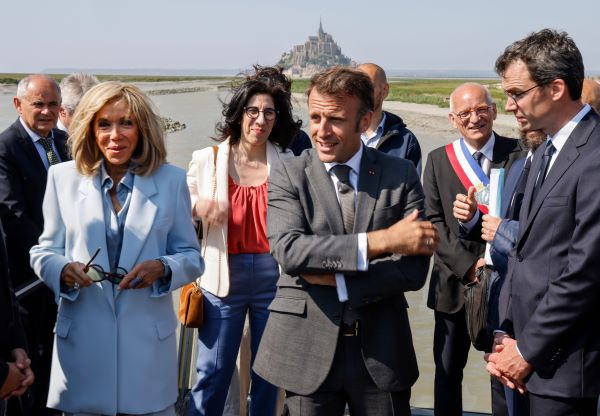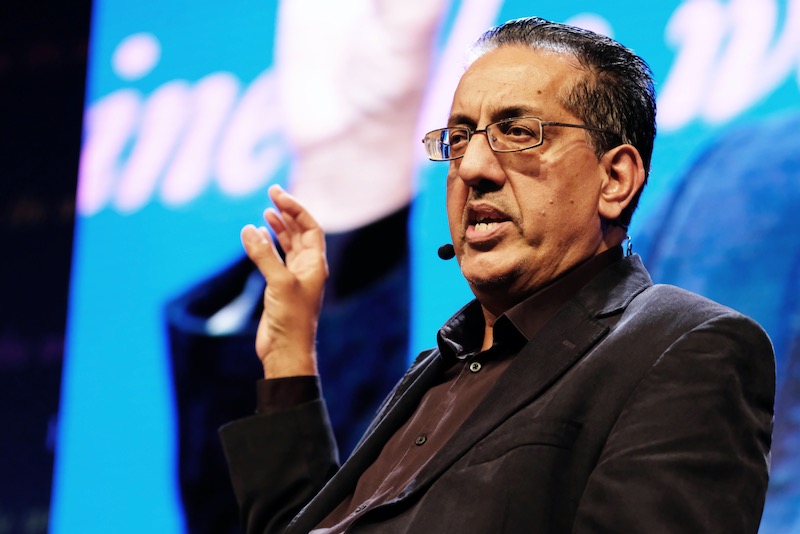Reforms to the way bishops are appointed and managed and to disciplinary processes in the Church are needed, the chair of Catholic safeguarding has said, after a damning report into the diocese of Hexham and Newcastle. The report shows how its former bishop ignored advice in appointing a priest with a history of grooming as Dean of Newcastle Cathedral and allowed a convicted paedophile to live in the bishop’s house.
Nazir Afzal, chair of the Catholic Safeguarding Standards Agency (CSSA), told The Tablet that there is a lack of transparency around the appointment of bishops and how they are dealt with, and this needs to change.
“The Catholic Church has made progress [on safeguarding] but it has leaps and bounds to go,” he said. “The thing that will make the biggest difference is greater transparency”.
Bishop Robert Byrne, who was installed as Bishop of Hexham and Newcastle in 2019, quit in December 2022, saying that his office was “too great a burden”. His departure came after complaints were made to the apostolic nuncio about Byrne’s leadership of his diocese.
In a report published on Monday, the CSSA concluded that there were “serious failures of leadership” from Bishop Byrne, including “poor decision-making, inappropriate associations, and ignoring professional safeguarding advice”.
The report is the second to have been published into the Diocese of Hexham and Newcastle in the past six weeks. The first, produced by Archbishop Malcolm McMahon for the Vatican’s Dicastery of Bishops, was damning in its conclusions about Bishop Byrne’s short episcopal tenure, saying that there were errors of judgement regarding the appointment of Michael McCoy, a priest with a record of safeguarding problems to the high-profile position of Dean of Newcastle Cathedral against advice, and also in Byrne’s friendship with a convicted paedophile, who was a frequent visitor to the Bishop’s home.
Archbishop McMahon commented that Bishop Byrne resigned because he felt unable to carry out the duties of his office, and that “I have no reason to disbelieve him”. Fr McCoy took his own life in 2022 after Northumbria Police began an investigation into an historic abuse allegation.
The CSSA report covers similar ground, and although it says that “current safeguarding practice meets the minimum standards” in Hexham and Newcastle, it points out that serious failures of leadership “undermined the work of safeguarding professionals and left people at potential risk. Ultimately a failure of leadership means a failure of safeguarding.”
But the CSSA report goes much further, highlighting major issues for the Catholic Church on the appointment of bishops and laicisation.
Given that Bishop Byrne’s tenure as bishop lasted just four years, was riven by controversies over safeguarding and that he failed to give “clear and ambiguous support” for “the Church’s position of zero tolerance of abuse during his tenure”, the CSSA says that the Church should consider how the appointment process of bishops is handled.
It also raises the question of laicisation of priests convicted of crimes regarding children.
The report records that Bishop Byrne socialised with a convicted paedophile priest, had him stay in his home, and tried to secure him a job in the diocese, although he was warned against this by a diocesan safeguarding official. The priest was a member of a religious order which had sought his laicisation after he was convicted of possession of child pornography. But despite the convictions and the order’s request, Rome blocked his laicisation. According to the CSSA, “Consideration needs to be given to the way in which disciplinary issues are dealt with.”
It also wants improvements to whistleblowing, so that people, including clergy, feel supported when they report their concerns. “Complaints were made about Robert Byrne and they ultimately led to him going, but it should have happened earlier,” said Mr Afzal.
The CSSA has also called for the Bishops’ Conference of England and Wales to look at how complaints can be dealt with if a bishop does not implement what his safeguarding team advises. “There is no escalation process. There is no point in having advice if the bishop does not take it. Newcastle shows there are wider structural issues for the Church,” said Mr Afzal.
The CSSA report makes 12 recommendations for the Hexham and Newcastle Diocese and another 10 for the whole of the Catholic Church in England and Wales. These include:
- That Hexham and Newcastle Diocese, including its trustees and apostolic administrator, Malcolm McMahon, should renew its commitment to safeguarding, should focus on “a clear pathway” for engaging with survivors; there should be more respect for safeguarding professionals, and the whistleblowing policy should be reviewing.
- That Hexham and Newcastle should strengthen links between the education department and safeguarding and there should be more safeguarding involvement in overseeing the use of overseas priests
- Bishops should consider how to make disciplinary and appointment processes more transparent.
- The Bishops’ Conference should set up an “escalation process” when a diocesan bishop ignores decisions from safeguarders and trustees.
- There should be a whistleblowing policy specifically for the clergy
- Bishops should outline how dioceses manage complaints about their bishops



 Loading ...
Loading ...